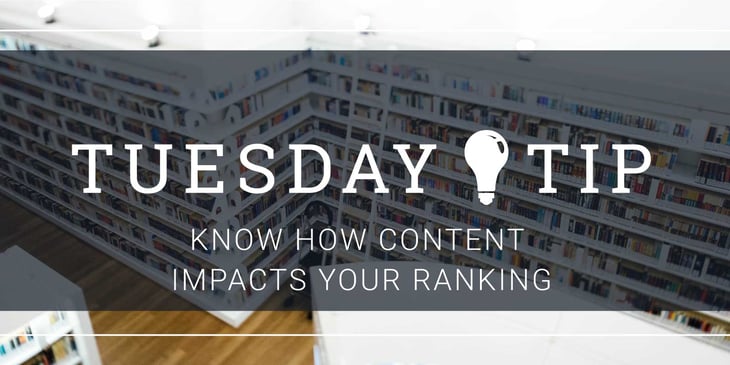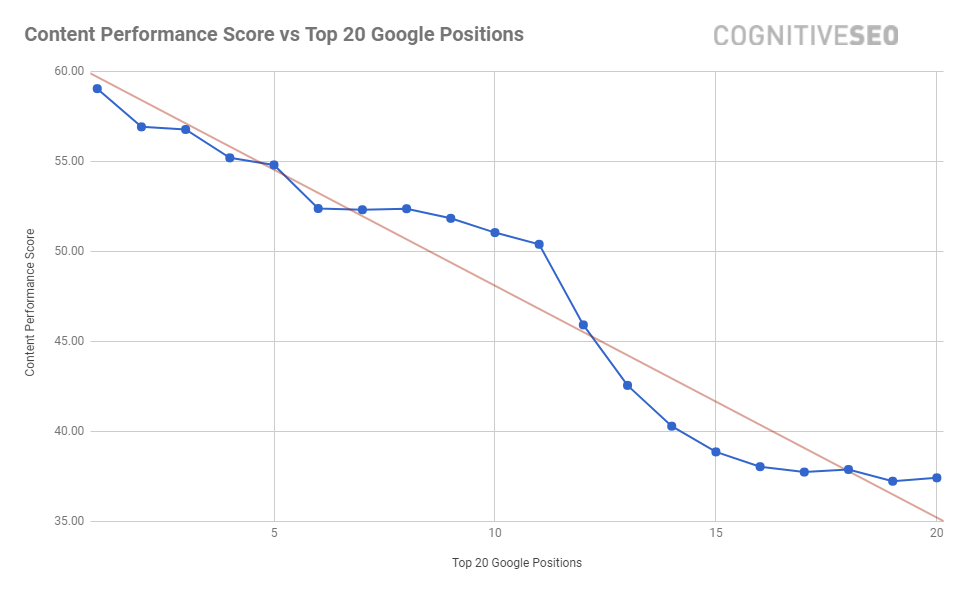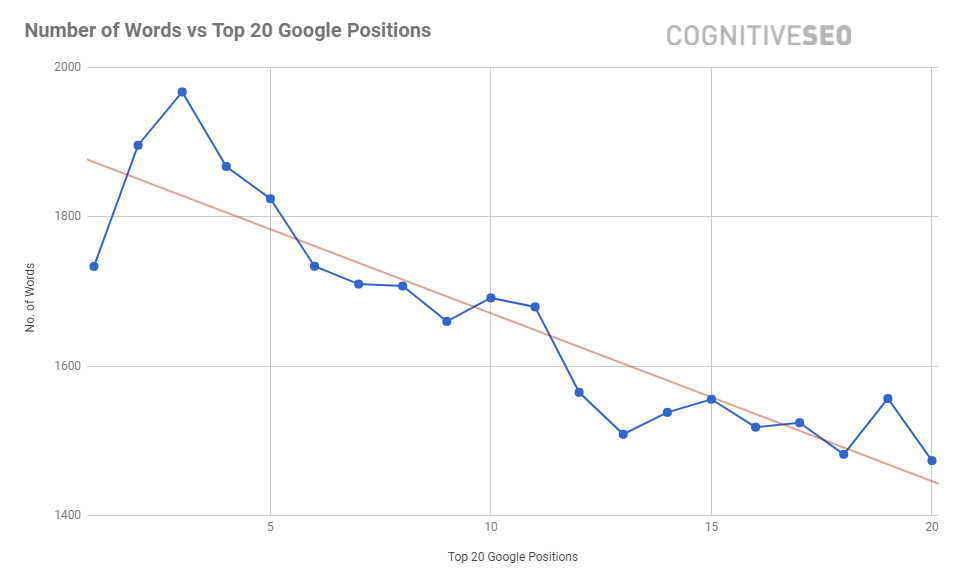
As digital marketers, we already know that having a blog is probably helpful to your site. We also know having a good blog is better than having a bad one. But how does content actually impact a site? What type of content is optimal? And do we really have to implement a content strategy?
That's what cognitiveSEO seeks to answer in their post, "How Content Influences Rankings – What We Found Out After Analyzing 3,7 Million Pages." Their analysis is thorough and we encourage you to read the full article, however, for the purposes of our quick Tuesday Tip, we broke down a few of our favorite points below.
1. The better the content, the better your ranking

This seems obvious, but there have been marketers that see any content—good and bad—as enough for building up your site's SEO. The graph above demonstrates how the higher your content performance—the quality of your content—the more likely you are to rank highly on Google. So we encourage you to not waste your time with anything but the best.
Now, it's challenging to produce content with a high content performance score if you don't know how that is calculated. Luckily cognitiveSEO explains themselves with this definition.
2. You can take advantage of commercial keywords to compete with the big guys
When building up your SEO, there are two ways to think about keywords: branded vs. commercial. A branded keyword for ArcStone would be "ArcStone," whereas commercial keywords would include "digital marketing," "web design" or any other service we provide.
Many of us get discouraged when we look at the big competitors and realize we could never keep up with their brand recognition. However, the article points out that there is a very strong correlation between high content ranking and use of commercial keywords. In other words:
"It’s almost impossible to keep up with the link amount a big brand is getting. Yet, content performance is something that is in your full control and you can take advantage of it."
You might not be able to keep up with their branded ranking, but you do have the power to produce a ton of well-optimized content and rank higher than those companies through your use of commercial keywords.
3. Brand keywords rank first
The average marketer does focus on commercial keywords but, as we've discussed in the past, many of us neglect branded. However, cognitiveSEO shows branded content holds a lot of potential for high rankings. In fact, it can hold this high potential without necessitating the same high content performance scores.
For example, if your brand name could also be optimized as a commercial keyword, something like "Brand Mentions" as seen below, it's likely to out-perform content optimized around that key phrase. This is even if that content has a higher content performance score than the branded content.
This doesn't mean you should be lazy when it comes to branded content. The higher content performance scores will not only make you sound better to your audience, but will also still help your rankings.
4. For the most part, content with around 1700 words performs best

We get asked this a lot, "how long should my blog posts be?" Unfortunately, there is still no easy answer. There are advantages to both: long posts allow you to get more in-depth and provide more opportunity to rank for keywords, however shorter posts are easier to complete so you can post more frequently—which Google likes to see.
What we can say is that after cognitiveSEO crawled a lot of data, they found that somewhere between 1400 and 2000 words was the average for posts ranking in the top 20 positions. You'll want to read the full article to understand why this answer is still complicated.
Thanks to research like that of cognitiveSEO, we will all continue to have a better grasp of what the ever-changing Google wants from us. Seek to understand what type of content you should produce and then build your content marketing strategy around that.
For more quick and simple Tuesday Tips, subscribe below!